Why land matters for economic development
There are many things the international community can do to encourage economic growth through the increased recognition of land rights. Here are some.
Land Matters was a month-long global conversation on Devex during September 2013. While this particular campaign to raise awareness about land rights for global development has since come to a conclusion, the importance of land remains a key issue for all development practitioners working toward a more sustainable future.
Devex will continue to update this website periodically, but in order to ensure you stay in the know about everything that is impacting global development, sign-up for Newswire to receive a comprehensive daily look at breaking news, analysis and opinion directly to your inbox.
The value of land is increasing, and investors around the world are taking notice. So have smallholder farmers in the developing world. When people feel secure in their ownership of the land and resources they cultivate and depend on, they are more likely to invest in their long-term success. That’s why land rights and registration can help to spur broad-based economic growth.
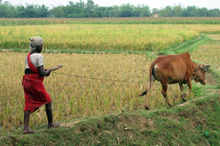
There are many things the international community can do to encourage economic growth through the increased recognition of land rights. Here are some.

Let's make sure that land matters will be incorporated in the upcoming global blueprint for post-2015 development, write Landesa's Tim Hanstad and D. Hien Tran and Omidyar Network's Matt Bannick in this guest commentary.
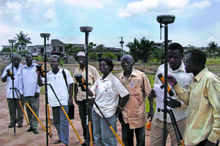
Strong land rights and ownership tend to promote economic stability. Here's how modern technology can help to accelerate land registration and governance. A guest opinion by Matt Delano, business area director at Trimble Land Administration Solutions.

Countries where most of the rural population lack land rights are doomed in their long-term economic development. They can learn from the experience of Vietnam, Landesa Founder and Chairman Emeritus Roy Prosterman writes in this guest opinion.
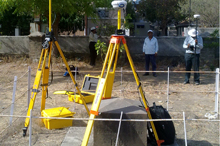
Trimble helps developing countries map land to boost tenure. How does it work? We asked Matt Delano, the group's business area director.
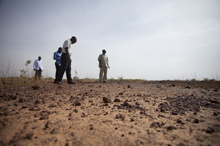
It is estimated that up to 40 percent of fertile land around the globe is seriously degraded. We spoke with Mark Schauer, coordinator of the Economics of Land Degradation, about the global study being undertaken to determine the economic impact of land degradation.
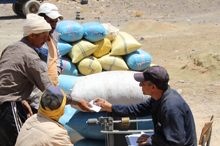
Small cooperatives in the barren steppes of eastern Morocco are now generating $1 million a year... producing rosemary. This is how a joint DAI-USAID project based on smart land use achieved such success.

Land matters for sustainable economies, livelihoods, human rights, and the environment- the development community cannot afford for land to be a trend. Expert panelists from DAI, Chemonics International, USAID, and Omidyar Network sat down with Devex to discuss what land rights mean for the future of global development.
Join the conversation